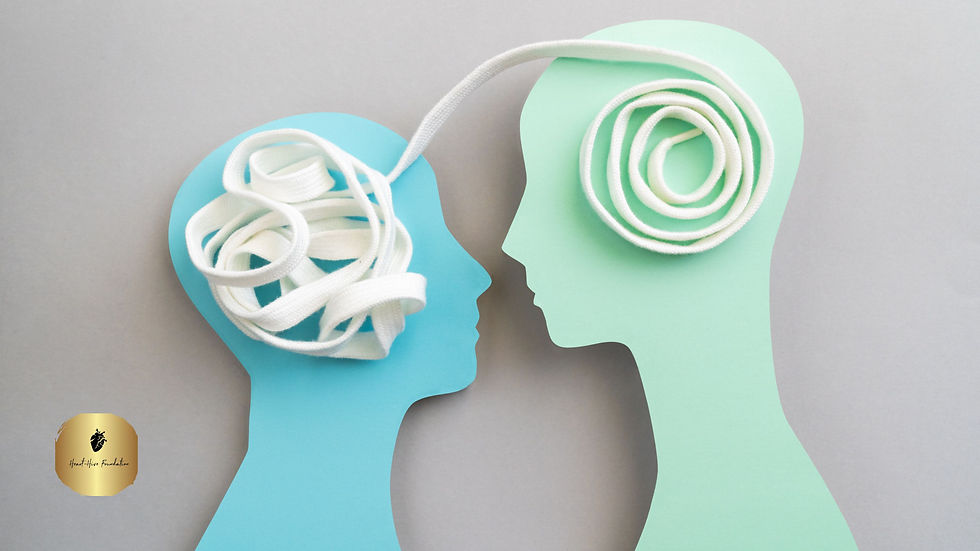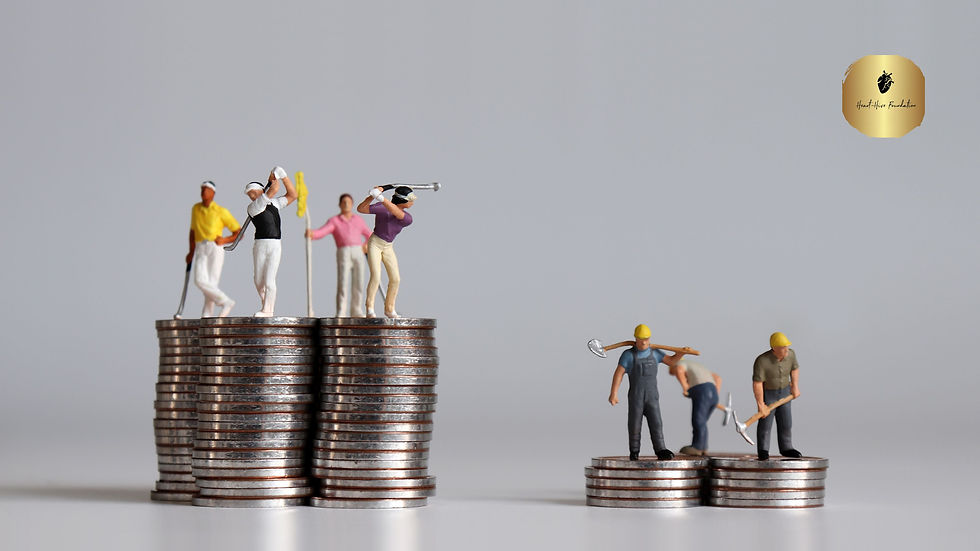Every Child Is Equal: Explaining Discrimination to Kids
- hearthiveorg

- Jul 17, 2025
- 4 min read
Updated: Aug 21, 2025
At Heart Hive Foundation, we believe every child deserves love, dignity, and opportunity no matter their race, gender, religion, background, or where they were born. But in a world still struggling with inequality, children may see unfairness or even experience it firsthand. As a young nonprofit committed to protecting vulnerable children, we understand that conversations around discrimination can feel uncomfortable or complex—but we will aim to make them easier, especially for the next generation.
Parents, guardians, teachers, and community members will play a key role in helping children recognize and stand up against discrimination as they grow. At Heart Hive Foundation, we aim to provide helpful tools, future programs, and child-centered messaging that encourages open dialogue and empathy. In time, we will also share stories from the communities we serve, and offer parents new ways to talk about fairness, kindness, and justice in terms children can understand.
Why Should We Talk to Children About Discrimination?

Children will notice differences among people from a young age—skin tone, languages spoken, hairstyles, customs, abilities. These observations are natural. What will shape their understanding will be how we respond to those differences—and how we offer support, empathy, and aid when needed.
Many children across the world will face barriers simply because of how they look or where they live. They will be treated differently in school, at play, or even when trying to access basic needs. If we will not talk about this reality, kids may grow up confused, silent in the face of injustice, or worse—may begin to believe that discrimination is normal or acceptable.
Our goal at Heart Hive Foundation will be to create safe spaces for children and families to talk about inequality openly. Future programs will be designed to promote inclusion, and we will introduce materials that make these important topics age-appropriate, empowering kids to develop empathy rather than fear.
Teaching Children What Fairness Really Means
Fairness will not always mean that every child gets the same thing—it will mean that each child gets what they need to thrive. This concept will be central to how we explain social justice, equal treatment, and work toward children's benefit in everything we do.
In our upcoming outreach and awareness efforts, we will show how some children may need more support to catch up because of the systems that will work against them. We will encourage parents to model fairness in everyday situations—sharing toys, taking turns, standing up for someone being excluded—all of which will lay the foundation for understanding justice on a broader scale.
Children will begin to recognize what unfairness looks like in real-life terms: when a child is bullied for wearing different clothes, when one student is always ignored in group work, or when media shows only one type of family as “normal.” These moments will become teaching opportunities—and a reminder of why it matters to donate today to help us change the narrative.
Use Stories and Experiences to Build Empathy

Instead of starting with facts, many experts recommend starting with stories. Heart Hive Foundation will gather narratives from children around the world—some who will be living in refugee camps, some born into extreme poverty, and others with disabilities or unique needs. These stories will not only highlight our work but also help children see others through a lens of shared humanity.
Books, videos, and roleplay will become tools to show what discrimination looks like and how it hurts. Children will often be more responsive to storytelling because it invites them to imagine themselves in someone else’s shoes. With the right guidance, they will begin to ask questions, express their feelings, and take thoughtful steps toward fairness.
We will also encourage families and educators to expose children to cultures, languages, and traditions that are different from their own. Diversity will not be something to avoid—it will be something to celebrate, especially when families choose to sponsor a child and make a direct impact across borders.
Helping Kids Recognize and Respond to Discrimination

When children see or experience discrimination, they may feel confused, scared, or even guilty. Adults will need to be ready to help them name what they saw and talk about it honestly.
Our future resources will guide parents in helping kids recognize discrimination in age-appropriate ways—whether it shows up in a playground joke, a biased TV ad, or an unfair classroom policy. From there, children will be empowered to ask questions like, “Why was that unfair?” or “What can we do next time?”
Children will also need to learn that responding to discrimination doesn’t always require confrontation. Sometimes, it will mean checking in on a friend who was excluded. Other times, it might mean reporting hurtful behavior to an adult, or simply saying, “That’s not okay.”
These early moments will shape their values long-term. When kids learn they have a voice, they will begin to speak up—not just for themselves, but for others too.
Model What Inclusion Looks Like at Home

The values children adopt will begin at home. When adults model kindness, fairness, and openness, kids are more likely to mirror those actions in their own social circles.
Heart Hive Foundation will advocate for inclusion as a lifestyle—not a one-time conversation. Future outreach campaigns will show parents and caregivers how small changes can make a big impact: inviting neighbors from different backgrounds over for dinner, celebrating international holidays, or reading bedtime stories that reflect a range of characters and cultures.
We will also encourage caregivers to examine their own biases, reflect on where they came from, and actively choose to raise kids who break cycles of silence or exclusion. Children will learn not only from what we say—but from what we do.
Every Child Deserves a World Without Discrimination
At Heart Hive Foundation, we will envision a world where every child is treated with compassion, dignity, and fairness. We will work toward that goal by building educational tools, storytelling platforms, and support networks that encourage honest dialogue and inclusive communities.
But this mission will not start with adults alone—it will begin with our children. As we help them understand discrimination, we will teach them to stand up, speak out, and offer love where others show hate. We will help them shape a future where every child is truly seen, heard, and valued—no matter who they are or where they come from.
.png)



Comments